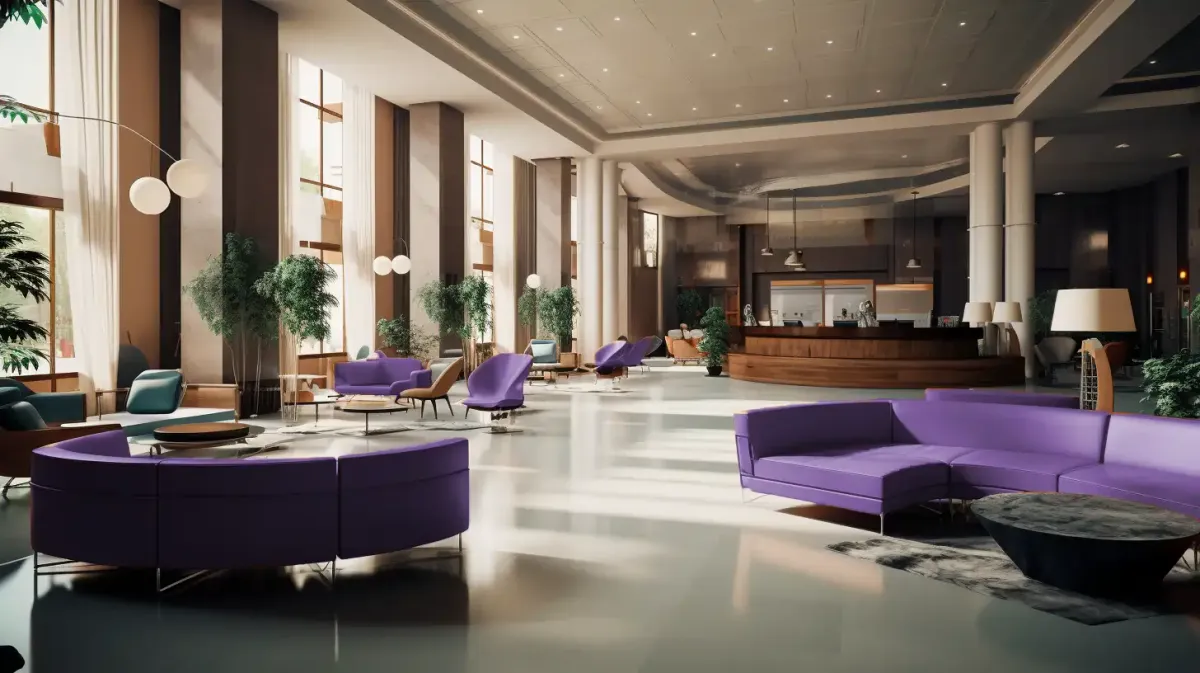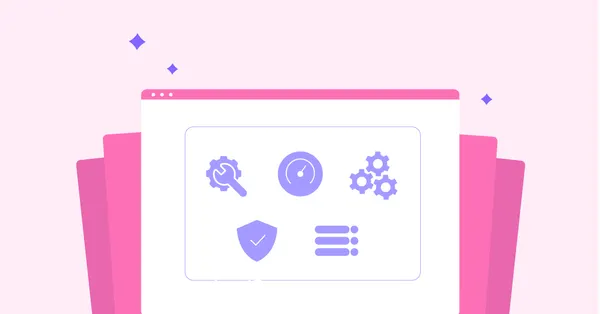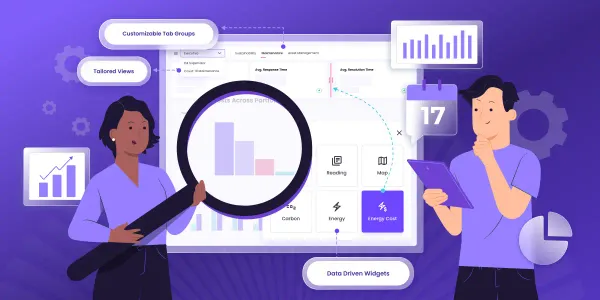
The Complete Hotel Preventive Maintenance Checklist: Step-by-Step Guide + Template
In the hotel business, one broken AC unit or an out-of-order elevator can do more than cause a minor inconvenience—it can damage your brand, cost you bookings, and spark a wave of negative reviews. And in most cases, it all comes down to missed maintenance.
Preventive maintenance isn’t just a checklist—it’s your first line of defense against service disruptions, compliance gaps, and costly emergency repairs. But for it to work, it has to be tailored to the unique pace, pressure, and complexity of hotel operations.
This guide walks you through how to do exactly that. You’ll get:
- A complete, frequency-based hotel preventive maintenance checklist
- A downloadable sample template
- Step-by-step instructions to build your own checklist, tailored to your property
- Best practices to ensure compliance, reduce risk, and protect the guest experience
This is your starting point if you want to stop playing catch-up and start running smoother, more resilient hotel operations.
Why Preventive Maintenance Is Critical for Hotels
Preventive maintenance in hospitality isn’t optional—it’s operational insurance. When executed well, it protects everything from guest satisfaction to regulatory standing.
- Guest Satisfaction: Guests may not notice perfect maintenance, but they always notice the failures. In-room AC breakdowns, non-functioning elevators, or a closed pool can immediately impact reviews and satisfaction scores. Preventive maintenance ensures these issues never reach the guest in the first place.
- Reputation and Revenue: Operational breakdowns have a ripple effect. A $50 part that goes unchecked can snowball into hundreds or even thousands in compensation, overtime labor, and brand reputation damage. Preventive maintenance protects the bottom line by minimizing those unplanned, high-cost incidents.
- Cost Control: Unplanned repairs often cost 3 to 5 times more than scheduled maintenance due to overtime rates, emergency parts orders, and guest recovery costs.
- Safety and Compliance: Preventive maintenance is essential for meeting fire codes, OSHA requirements, ADA compliance, and brand standards. Missed inspections can lead to fines—or worse, compromised guest and staff safety.
- Asset Longevity: Well-maintained equipment, such as boilers, chillers, elevators, and kitchen gear, lasts significantly longer and performs more reliably. This extends your capital planning runway and reduces the frequency of large-scale replacements.
Every $1 skipped in preventive maintenance can cost $4 to $6 later in repairs or lost revenue.
For hotels, a strong PM program is the difference between five-star stays and one-star reviews.
How to Build Your Hotel Preventive Maintenance Checklist
Every hotel is different, but the right approach to building a preventive maintenance checklist follows a consistent, proven framework.
Whether starting from scratch or refining an existing program, these five steps will help you build a hotel maintenance checklist that’s effective, compliant, and ready for real-world use.
Step 1: Identify All Assets and Source Requirements
Start by listing every critical asset and system in your hotel. This includes:
- HVAC units, boilers, chillers
- Elevators and escalators
- Fire panels and alarm systems
- Kitchen equipment and refrigeration
- Irrigation systems, pumps, and pools
- Electrical panels, UPS, and backup generators
For each asset, gather the following:
- OEM manuals with manufacturer-recommended PM intervals
- Warranty details and service contracts
- Local regulations or brand standards (e.g. elevator certifications, fire safety inspections)
Step 2: Assign Roles and Accountability
Define exactly who is responsible for each preventive maintenance task:
- Engineering: Core mechanical, HVAC, electrical, and safety systems
- Housekeeping: Minor room-level checks (e.g. furniture, faucets, remote batteries)
- F&B / Kitchen: Line equipment inspections, cleaning logs
- External Vendors: Fire systems, elevators, deep HVAC service
Step 3: Customize for Your Hotel’s Needs
Avoid generic templates. Your checklist should reflect:
- Asset Age: Older systems need more frequent inspections
- Amenities: Pools, spas, gyms, and kitchens add complexity
- Location: Humid climates, coastal properties, or high-altitude regions affect maintenance schedules
- Occupancy Patterns: Use low-occupancy periods for disruptive or intrusive tasks
Example: A beachfront hotel may require monthly HVAC coil cleaning, while a mountain resort prioritizes winterizing plumbing systems each fall.
Step 4: Organize Tasks by Frequency
Break tasks down by how often they need to be performed. This makes execution and delegation easier:
- Daily
- Weekly
- MonthlyQuarterly
- Bi-Annual / Annual
✅ Pro Tip: Group tasks by both frequency and asset zone (e.g., “Monthly Kitchen Tasks”) to help each team focus on what matters most.
Step 5: Digitize, Track, and Improve
A report by McKinsey highlights that digital maintenance systems can lead to cost reductions of 15% to 30% by increasing the efficiency of maintenance labor.
Hotels using digital checklists report fewer overdue preventive maintenance tasks and far faster audit prep cycles.
The most effective hotel maintenance programs are digital, data-driven, and constantly evolving. Moving your checklist into a digital platform like a CMMS unlocks:
- Auto-reminders for recurring preventive maintenance tasks
- Digital sign-offs for task completion and accountability
- Real-time dashboards to monitor progress, delays, and escalations
- Easy updates as assets, SOPs, or compliance requirements evolve
- Centralized logs for vendor tasks, inspections, and service history
But digitization is only part of the equation. To keep improving, you need structured performance reviews and feedback loops built into your routine.
See how Facilio helps hotel teams automate preventive maintenance, stay audit-ready, and resolve issues before they become reviews.
KPIs to track hotel preventive maintenance efficiency:
- PM Completion Rate — % of scheduled PMs completed on time (Target: 95%+)
- Reactive vs. Preventive Ratio — % of work that’s planned vs unplanned (Target: >80% preventive)
- Work Order Response Time — Speed of resolving staff- or guest-reported issues
- Cost per Room — Total maintenance costs (labor + materials) ÷ number of rooms
- Guest Complaints Linked to Maintenance — Track incidents tied to missed PMs
Continuous Improvement Actions
- Review KPIs monthly and quarterly to spot patterns and gaps
- Collect feedback from engineering, housekeeping, and vendors on checklist effectiveness
- Adjust frequencies for high-failure or low-priority assets
- Revisit vendor schedules and SLA performance at least annually
- Add new systems or PM checklists as your hotel expands, renovates, or introduces new amenities
Preventive maintenance should never stay static. A digital-first, feedback-powered approach ensures you’re not just maintaining equipment—you’re improving every part of the operation, from guest experience to audit readiness.
High-Impact Areas for Hotel Preventive Maintenance
Hotels operate with one of the most complex asset stacks in the commercial world. From high-turnover guest rooms to behind-the-scenes infrastructure, every space has a direct or indirect impact on the guest experience, safety, and operational efficiency.
A comprehensive preventive maintenance program must map every zone and system—not just for upkeep, but for performance, compliance, and brand protection.
Often Overlooked but High-Risk Areas
Many hotels overlook smaller or back-of-house systems that still affect performance and compliance.
Don’t skip these:
- Ice machines and water dispensers
- Staff-only corridors and restrooms
- Card reader and key battery systems
- Drainage grates and sidewalk tripping hazards
- Backflow preventers and water heaters
With a connected asset register, like those enabled by Facilio, each area can be assigned a profile, maintenance schedule, and real-time status updates. That means no more blind spots or last-minute surprises.
Hotel Preventive Maintenance Checklist: Task Frequency by Area (Sample)
A well-structured preventive maintenance (PM) checklist is essential for ensuring that all hotel areas are maintained efficiently and effectively. Organizing tasks by frequency and area helps in delegating responsibilities and maintaining consistency.
✅ Daily Maintenance Tasks
Guest Rooms
- Inspect door locks, latches, and safes
- Check thermostats; test AC/heater functionality
- Test all lighting; replace bulbs as needed
- Ensure plumbing fixtures function properly; look for leaks
- Check TV, remote, phone, and other amenities
- Inspect furniture for wear, stains, or damage
- Verify cleanliness and readiness of guest-facing items
Common Areas
- Sweep and sanitize floors and entryways
- Replace burnt-out bulbs
- Inspect for hazards (wet floors, blocked exits, loose railings)
- Test lobby HVAC and ensure good air quality
- Maintain cleanliness in lobbies, hallways, and lounges
Kitchen & Laundry
- Clean and sanitize all surfaces and appliances
- Inspect ovens, ranges, and hoods for buildup
- Monitor refrigeration unit temps; log readings
- Check commercial washers/dryers for leaks
- Empty grease traps and ensure dishwashers are functional
Pool/Spa & Fitness
- Test and balance pool chemical levels; log results
- Skim pool, inspect deck, signage, and safety features
- Sanitize fitness equipment and test functionality
Public Restrooms
- Refill consumables (soap, paper towels, toilet paper)
- Check lighting, plumbing, and cleanliness
✅ Weekly Maintenance Tasks
- Inspect elevator operation (doors, buttons, emergency phones)
- Test backup/emergency lighting and exit signage
- Lubricate mechanical fitness equipment
- Deep clean carpeting in high-traffic areas
- Clean and inspect exterior doors and windows
- Inspect outdoor lighting fixtures
- Check roof drains and gutters for blockages
- Conduct pest checks in kitchens, storage, and trash zones
- Spot-check landscaping and irrigation systems
✅ Monthly Maintenance Tasks
- Clean HVAC coils; replace air filters as needed
- Calibrate thermostats; verify HVAC performance
- Inspect and test fire alarms, smoke detectors, and pull stations
- Inspect electrical panels, breakers, and outlets
- Flush water heaters; inspect plumbing systems
- Run generator or UPS systems
- Inspect and clean kitchen exhaust fans and filters
- Check guest room electronics (TVs, phones, safes)
- Inspect public area flooring for wear or damage
- Inspect and test guest-facing systems (keycards, safes, etc.)
✅ Quarterly & Seasonal Maintenance Tasks
- Deep clean and rebalance pool/spa systems
- Conduct full roof inspection (especially post-weather events)
- Clean HVAC condenser and evaporator units
- Perform full exterior building inspection (walls, paint, signage, landscaping)
- Inspect parking lots, walkways, and curbs for resurfacing or repairs
- Test snow removal equipment (if applicable)
- Rotate mattresses; deep clean guest room upholstery and curtains
- Refresh worn-out finishes or fixtures in rooms and corridors
✅ Annual Maintenance Tasks
- Schedule elevator recertification and full safety audit
- Deep-clean HVAC ductwork; replace filters with upgraded units
- Recalibrate all thermostats across guest rooms and common areas
- Perform comprehensive life safety system checks and fire drills
- Replace or service major appliances in kitchens and laundry
- Pressure-wash exterior surfaces, including façades and pathways
- Conduct full pest control sweep and remediation as needed
- Review and update the PM checklist based on new equipment or SOPs
Implementing this structured checklist ensures that all areas of the hotel are maintained proactively, reducing the likelihood of unexpected issues and enhancing the overall guest experience.
Note: No two hotels are identical. Use this checklist as a foundation, but iterate based on your guest profile, geography, and asset register.
Five Best Practices for Hotel Preventive Maintenance Success
Preventive maintenance works when everyone plays a part—not just fixing issues, but spotting them early. It’s about creating a culture where teams flag problems before they become breakdowns. Here’s how to build that across your hotel.
- Establish Clear SOPs: Document and standardize each preventive maintenance task. Use instructions, photos, and even video in your tech platform when possible.
- Engage & Train All Staff: Housekeeping, F&B, concierge, and even front-desk staff should be empowered to spot, log, and sometimes resolve minor issues. Example: Housekeepers noting damp carpet might flag an AC leak far sooner than a quarterly inspection.
- Foster a Reporting Culture: Make it easy for staff to flag issues (“see something, say something”). Use mobile tools for snap-reporting with photos.
- Align Preventive Maintenance with Occupancy Patterns: Schedule deep work (e.g., major kitchen or high-disruption PMs) during low-occupancy windows or off-shoulder months.
- Leverage Digital Systems for Accountability: Require digital sign-off and timestamps for preventive maintenance completion. Enables both in-the-moment tracking and historic audit trail.
How a Connected CMMS Elevates Hotel Maintenance
A Computerized Maintenance Management System (CMMS) is your digital command center—tracking every asset, every work order, every preventive maintenancecheck, and every compliance log in one place.
Core Advantages of using a CMMS for Hotel Maintenance:
- One-Click Scheduling: Build maintenance calendars for all assets and zones, assign technicians, and automate reminders—no manual tracking needed.
- Real-Time Task Monitoring & Escalation: Staff and vendors can report completions, delays, or urgent issues directly from their mobile devices. Managers get instant visibility without back-and-forth calls or confusion.
- Centralized Asset Histories: Every room, HVAC unit, and elevator has a digital profile—with service logs, warranty info, part replacements, photos, and compliance records all in one place.
- Audit-Ready Compliance: Instantly export digital maintenance logs for HA, OSHA, fire safety, or brand audits. Find certificates and inspection histories by asset in seconds.
- Internal Accountability: Know who completed each task, when it was done, and what was noted—eliminating guesswork and missed handoffs.
- Custom Reporting & KPIs: Track metrics like on-time PM completion rates, cost per preventive task, and the ratio of reactive to preventive work to continuously improve performance.
- Mobile-First Experience: Give engineering, housekeeping, and managers full access on the go—checklists, assignments, status updates, and reporting in the palm of their hand.
Facilio’s CMMS was built with multi-site hotel operations in mind. It lets you:
- Digitize preventive maintenance checklists with customizable templates
- Auto-assign tasks to staff or vendors, with escalation rules for urgent issues
- Track every asset’s lifecycle, service history, and compliance status
- Monitor utilities and sustainability KPIs right alongside maintenance tasks
- Centralize vendor records, safety certs, and SOPs in one place
- Enable mobile-first workflows—engineers, housekeeping, and managers all stay in sync
Common pitfalls in hotel preventive maintenance and how a CMMS helps avoid them:
Modern Trends & Challenges in Hotel Maintenance
Hotel maintenance teams face increasing pressure to do more with less. The smartest programs are adapting by:
- Addressing labor shortages with cross-trained staff and CMMS automation
- Tracking outsourced work to maintain visibility and compliance
- Prioritizing sustainability with energy-efficient upgrades and utility monitoring
- Leveraging technology like IoT and mobile tools for real-time task management
- Communicating transparently with guests about impactful maintenance activities
Staying proactive means staying ahead—operationally and reputationally.
Preventive Maintenance: The Key to Seamless Guest Experience
Every hotel understands the value of preventive maintenance. But managing it manually? That’s where things break down—literally. A digital approach doesn’t just make maintenance easier—it makes it measurable, scalable, and future-ready.
Facilio goes beyond basic CMMS tools by giving hotel teams real-time visibility, unified asset tracking, and seamless coordination across departments and locations. It's not just software—it’s a smarter way to keep your hotel guest-ready, audit-ready, and always in control.
Want smoother stays and smarter maintenance?
See how Facilio closes maintenance gaps, automates compliance, and boosts guest satisfaction across every property!
BOOK A DEMOFrequently Asked Questions
- What is preventive maintenance in hotels?
Preventive maintenance in hotels involves regularly scheduled inspections and servicing of equipment and facilities to prevent breakdowns. This includes tasks like HVAC filter changes, elevator checks, plumbing inspections, fire safety testing, and in-room equipment checks. It helps ensure smooth operations, guest satisfaction, and compliance with safety and brand standards.
- What are the main types of maintenance in hotels?
- Preventive Maintenance (PM): Scheduled tasks to keep systems running smoothly (e.g., HVAC servicing, fire system testing).
- Reactive Maintenance: Fixes made after something fails, like a leaking faucet or broken light.
- Predictive Maintenance: Uses sensors or data to identify issues before they happen, such as vibration monitoring on chillers.
- Routine Maintenance: Basic daily upkeep like replacing bulbs, refilling supplies, or topping off pool chemicals.
- Emergency Maintenance: Urgent repairs to fix serious, unexpected failures that impact guest experience or safety.
- What is PPM in hotel housekeeping?
Planned preventive maintenance (PPM) in housekeeping focuses on keeping guest rooms and furnishings in top condition beyond daily cleaning. This includes periodic deep cleaning, checking and maintaining in-room amenities, inspecting and repairing furniture, and refreshing worn-out finishes. It reduces wear-and-tear complaints and ensures rooms consistently meet brand expectations
- How often should hotel guest rooms be inspected for preventive maintenance?
Industry best practice is at least once per occupied stay (between guests) and then additional spot checks monthly. High-occupancy or higher-star properties often add quarterly deep-inspect checks.
- Should hotels outsource some maintenance, and if so, what?
Most outsource code-driven/compliance tasks (elevator, fire/life safety systems cleaning and inspection) but keep guest-impacting general preventive maintenancein-house for rapid response.
More from Facilio














